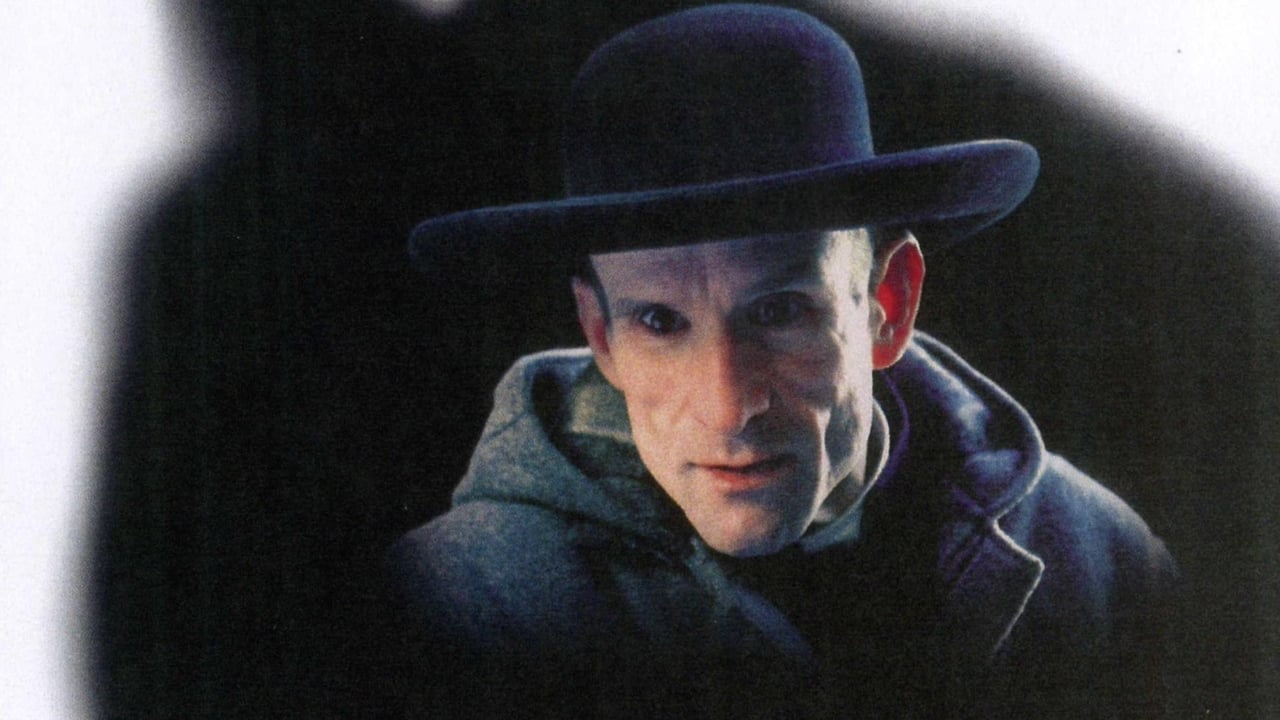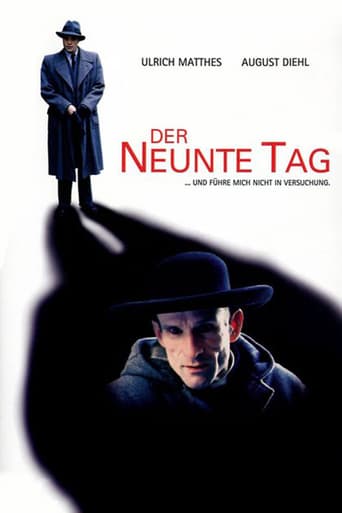Hellen
I like the storyline of this show,it attract me so much
FuzzyTagz
If the ambition is to provide two hours of instantly forgettable, popcorn-munching escapism, it succeeds.
Delight
Yes, absolutely, there is fun to be had, as well as many, many things to go boom, all amid an atmospheric urban jungle.
Billy Ollie
Through painfully honest and emotional moments, the movie becomes irresistibly relatable
Dale Haufrect
"The Ninth Day" is one of Volker Schlondorff's finest directorial feats. It covers an episode of the Nazi concentration Camp of Dachau in which there was a lesser known group of Catholic priests who were incarcerated and half of them exterminated by the oppressive regime that had enveloped Germany in the 30's and 40's during WW II. It particularly revolves around a priest from Luxemburg, Father Henri Kremer, who is released for a nine day period from the camp in order to develop positive relationships between the Bishop of Luxemburg and the Pope and Adolph Hitler's Nazi goals of extermination of specific groups of peoples. Ulrich Matthes plays Henri Kremer and he is very convincing in his strength of faith and love of family in his struggle to accomplish what he has been requested by the Gestapo to do. August Diehl is brilliant in his portrayal of Unterstumfuhrer Gebhardt, the demanding and ruthless Gestapo leader who degrades and tortures his victims to the nth degree. The cruel treatment and crucifixions of the priests is difficult to watch, yet this is a true recollection of events documented by the writer of the book by the same name. He was one of the few Catholic priest survivors of the camp. This film was released in 2004, and it is now on DVD and well worth the viewing for an historical standpoint with a different twist.
golomi
After reading some of the reviews below, I could not resist the frustration and decided to register and express my own opinion on the subject. First of all, it is a great movie, very humanistic and powerful. It is a movie about inner human struggle, it has nothing to do with church propaganda or any other nonsense so cheaply expressed by some "commentators". Being myself raised and atheist (in the former Soviet Union), subsequently going through Christian transformation but eventually abandoning it and becoming a naturalistic pantheist, I found the movie extremely resonating and devoid of any propaganda at all. It is a story about life the way it was, about people cast into the horror of the state machine, powerless and nearly broken. You will see no heroics, no pretty faces, no romantic interludes, only the bleak atmosphere and a masterful portrayal of the events. The most persistent feeling the movie leaves inside is the torturous question "What character could I actually be had I lived back then?" – and the chilling realization of the answer – "anyone of them." I only hope that the History is not going to repeat itself the way it always persistently did over the past millennium.Most people are "conditioned" with the false sense of Hollywood "reality" in movies, but the real life is very different and this movie provides a great example of it. It actually is a big plus that the language is German, it adds a lot to the authenticity of the feeling. I have no difficulties following the English subtitles, the dialogs are sparse and do not divert from the main flow (needless to say, my native language is Russian). Finally, the soundtrack is simply incredible. The morons who call it "weak" should check the credits at the end – the bulk of the sound uses Alfred Schnittke's symphonic works – a perfect ornament to the gloomy and hopeless flow.If you are looking for a movie to entertain yourself, you are definitely in a wrong place. By if you are like me, looking for a movie to enhance your soul and understanding of the drama of our life, then it is definitely worth checking out. 10/10
bsinc
This movie is full of symbols, noticeable and hidden, and takes quite a different step from other WWII movies. A test of will and faith is the lesson that we are given, and I must admit, the whole concept of Judas as the traitor and Luxembourg as the had me confused at moments because above all, "Der Neunte Tag" is a very philosophical movie.Somebody mentioned the word "propaganda of the Catholic church" in a previous comment-well here's my thoughts on this. When's the last time you celebrated Christmas, had an Ester egg, saw a Pope on TV (not to mention-DIDN'T see any Jewish, Islamic, Hindu, Taoist and other important religious figures) or just passed a Catholic church on the way home. We are surrounded by propaganda, and because a monstrous conqueror of the world used it to achieve his objectives almost 70 years ago people make your so called "propaganda" of the 2nd World War as well, right? Don't be so ignorant and offended without a cause my man-it's the Catholic church that started most historical and current wars in the first place.Now, back onto the tracks. Well written, well acted (I got a chance to ask August Diehl some questions and congratulate him for his role- the 16th Ljubljana Film Festival rocks!!!), and well paced "Der Neunte Tag' is a memorable movie that has something to say and let's you decide everything else. "It's a philosophical sport, boomerang: you give something and it comes back to you"9/10 - Recommendations-Anyone seeking a thought provoking movie
siegfried hasse
Mr. Schlöndorff's "Ninth Day" is clearly in the tradition of Veit Harlan's old Terra movies. The recipe is simple: the director takes some historical events, distorts the inconvenient facts, invents some convenient facts to meet the ax he has been given to grind, and then he shoots away.In this case historical names are changed and events are invented to make the point that the Catholic Church behaved honorably during World War II. Whereas Joseph Philippe, the historical wartime bishop of Luxembourg has acquired the sobriquet "The Silent One," for refusing to speak out against the atrocities committed by the Germans, in this film he is presented as boldly resisting the Germans. With the bishop's celluloid moral credentials thus firmly established, Mr. Schlöndorff expects us to buy the defense of Pope Pius XII's silence about the Holocaust, simply because it comes from the bishop's mouth. Trouble is, the bishop's February 1942 argument rests on events in the Netherlands that haven't even taken place as yet, and were not going to take place until July 1942. What sloppiness! Pope Pius XII may be a controversial figure, and while the case for his defense is far from easy, it is certainly not helped by this kind of massive and careless falsification of history. When you falsify history, you better not land in some trivial contradictions. Much as he would have been pleased by Mr. Schlöndorff's attempt, Dr. Goebbels would not have tolerated such amateurishness. Unfortunately, artistically as well, this film does not hold a candle to its Goebbels-Harlan model.

